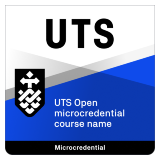This microcredential is structured into six modules delivered over six weeks. The course includes self-study materials, interactive and practice based activities, and facilitated online sessions. Modules 1, 2, 4, 5 and 6 are core modules whereas modules 3 offers a range of elective topics that you select based on your learning goals and workplace needs.
Module 1 – Contextualising Inclusion and Exclusion
This introductory module begins with an exploration of the question; ‘why does inclusion matter in higher education’. Examine the concepts of equity, human rights, and social justice and how they relate to the higher education context.
Module 2 – Framing Issues and Concepts
Delve deeper into concepts such as cultures, diversity and identity. Examine the impact our social identities have on the ways we teach, work, and interact with others.
Module 3 – Situating Experience and Identities
Explore experiences of groups historically marginalised and excluded from higher education in Australia. You will begin with the topic; ‘First Nations Peoples of Australia and higher education’ and then choose from a variety of topics such as:
- Cultural, Linguistic and Religious Diversity
- Low Socio-Economic Status and First in Family students
- Women in higher education
- LGBTIQA+
- Accessibility awareness and living with impairment
Module 4 – Valuing and Practising Inclusion
Discover principles for greater and more sustainable inclusion that will guide changes in how you practise. In this module, you will delve deeper into topics that relate to your professional and social practices and adapt each of the principles introduced to make them relevant for your workplace.
Module 5 – Getting Ready for Change
Examine how to plan for change in your daily and professional life to create conditions for inclusion and social justice. Learn how to apply the knowledge, ideas and tools developed throughout the course to your professional and social practice.
Module 6 – Social Justice in Action
Engage in a practical workshop to discuss ideas and progress of Assessment Task 2. You will have an opportunity to seek feedback and comments as well as revisit topics of interest and reflect on learning outcomes.









